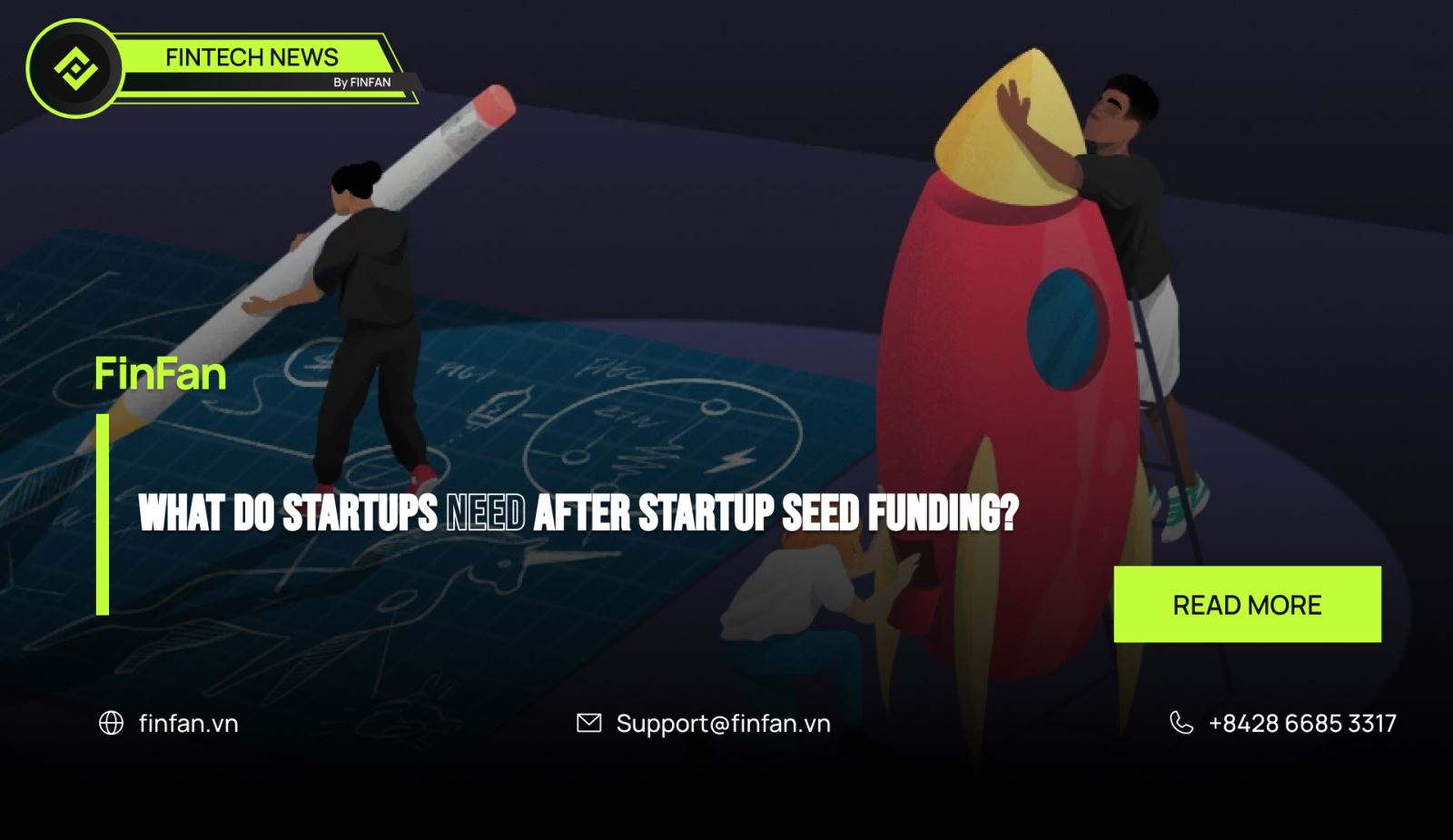What do startups need after startup seed funding?

In the article Startup seed funding – What are the difficulties for founders after startup seed funding? we know the difficulties of startups founders when they run their startups at the time of seed funding.
What do startups owners need after seed funding? Is it just money or is there something more important? Let’s find out this with FinFan in this essay.
First, money is always necessary to maintain the survival of the business.
In seed funding, after running the business for a while and achieving some initial achievements that are shown very well in the financial statements.
Startups need a large amount of cash to continue to strengthen their competitive position in the market and grow rapidly to continue to the next round of funding.
At this stage, the capital that the startup receives will support this company in improving products/ services and can develop and train better staff capacity to cope with strict requirements from customers in the new period.
Is only money enough?
The answer is always no for all investment cases. Many startups, after receiving a lot of money during this period, were suddenly silent for a while and then were gradually eliminated from the market (although the media during the period of receiving great investment praised this startup too much).
What factors are needed for startups after receiving investment from seed funding?
First of all, is advice from a mentor.
In this period, after receiving a large amount of money, the startup can be negligent in working and managing capital, leading to inefficient use of the budget, and quickly running out of capital resources leading to heavy financial difficulties after that.
Therefore, at this stage, they need a mentor from investors (who are very knowledgeable about their products and services as well as their market) to advise and intervene when they use the capital for the wrong purpose.
Second is the long-term development strategy from the COO.
A long-term strategy will help businesses go further not only at the seed stage but also at the later series stage.
Most startups only focus on the first stage (the most difficult in the development process of startups), they will lose orientation and have no specific business development plan after achieving some success and passing the seed round.
In addition to financial advice, the mentor must advise the COO of invested startups on long-term development strategies before reaching the IPO.
Third, they need a business appraiser (usually done by CFO).
This person's job is based on the results of the financial statements to make appropriate assessments for the business at present after receiving the investment capital. At the same time, this is also the person who helps them calculate the company's value in the next series of fundraising.
Moreover, the business appraiser can extinguish the illusions of the founder in the fundraising process when valuing his/her company too high or can also be the one who elevates the value of the business before investors, when they evaluate the founder’s business, is too low.
Lastly, the harmony of people in an organization is determined by CHRO.
It is very important to choose the right people for the organization or to be the bridge for people in the organization to connect with each other.
A business cannot develop sustainably when its internals are not in harmony or do not work closely with each other to get the job done.
Moreover, after receiving a large amount of investment, the person in charge of HR must find employees who are both talented and virtuous so as not to compromise their confidential information.
Along with that, this chosen staff does not use tricks to bring each other down and compete for some new benefits that the company will provide after receiving a large capital source.
These are some factors that startups need to have after receiving huge capital from investors in seed funding.